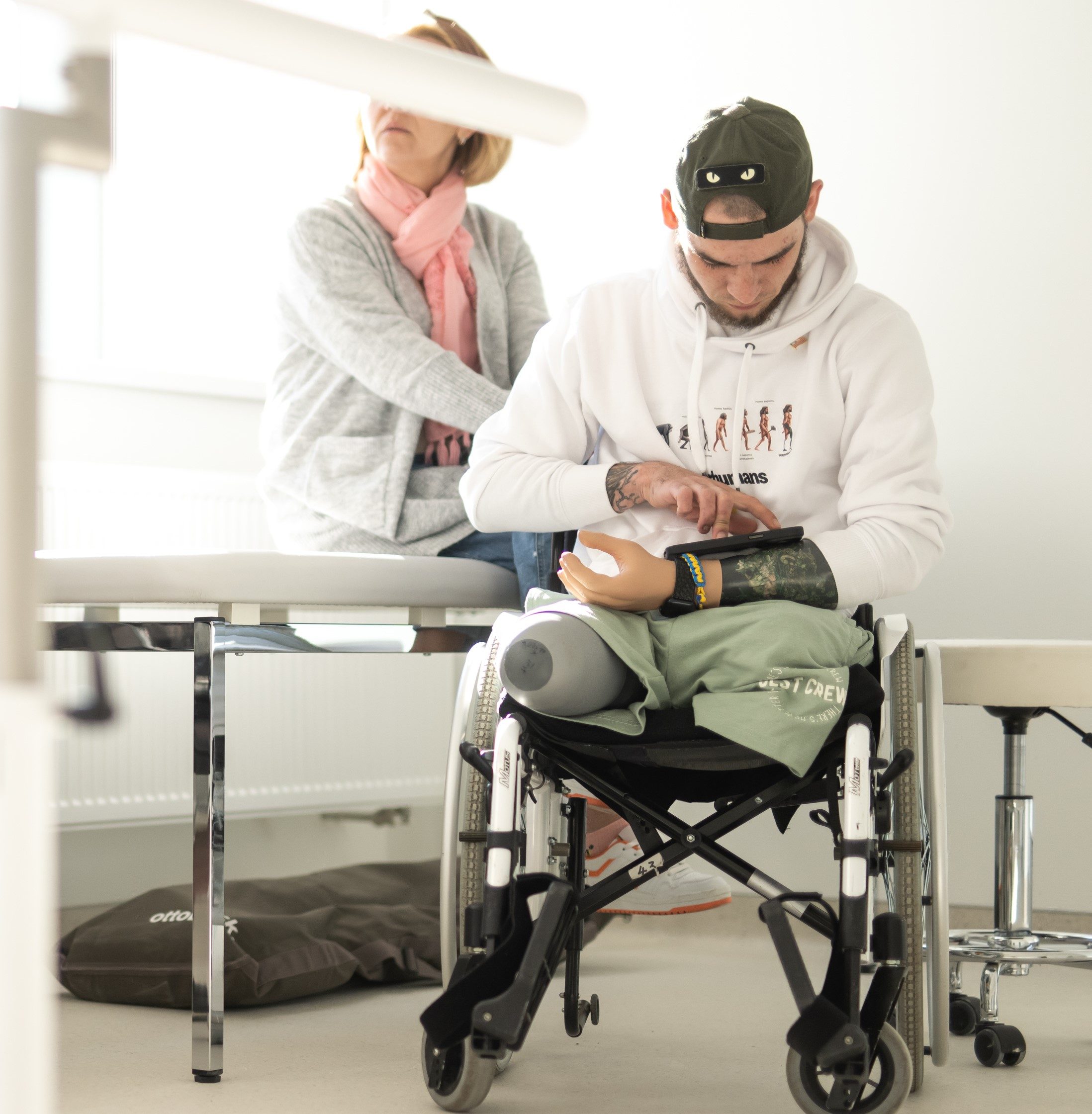What does good leadership in the NHS look like?
Three experts from both inside and outside the NHS give their perspectives on the complexities of leadership in a healthcare environment – and suggest some answers to questions facing people in those roles
The NHS faces unprecedented challenges, and effective leadership is a key part of its response. Lord Darzi’s recent report on the NHS in England recommended re-engaging staff and improving operational management.
Earlier this year, Dame Anne Marie Rafferty, former Royal College of Nursing (RCN) president and professor of nursing policy at King’s College London, spoke about leadership at The Times Health Commission Summit. She said: “More basic support for line managers and supervisors [is needed] because those are the people who need it, the whole chain of command who are looking after staff. [If] they don’t have the resources, they are unable to make changes.”
We asked three key NHS leaders and consultants how leadership can drive continuous improvement to create a strong NHS.
Richard Meddings, Chair of NHS England, provided insights into the strategic challenges and opportunities facing the organisation at a national level. Adele McCormack, Deputy Chief Operating Officer at North London Mental Health Partnership, spoke about management challenges day-to-day, and Andrew St George, one of the architects of the Messenger Review, brings an academic and research perspective.
Together, their insights shed light on the complexities of leading in a healthcare environment and potential solutions to the many challenges.
The challenges of leading within the NHS
For Richard, any conversation about leadership has to take into account the wider context.
“The NHS is seeing exponential growth in demand, and the capacity in our system to meet that demand is constrained. We have fewer beds and less diagnostic capacity than our partners in the Organisation for Economic Co-operation and Development [OECD], and yet we have increased demand from an ageing population, as well as in mental health services, not to mention the financial challenges. That said, I am amazed and humbled that, at the same time, the NHS is providing record levels of healthcare.”
Leaders also face complex challenges that vary across different entities. “We have something like 130 objectives – more than 100 of which are in legislation, regulation or statute – which, from my private sector experience, is just unconscionable as a number. But when you look at each of these objectives, you can understand why they are a requirement. So, in some parts of the system what is needed is different but, in the end, leaders have to work out what they prioritise their time on, and what they direct their entity to focus on and that task is extremely challenging.”
Not only are many leaders fire-fighting the immediate problem of waitlists, old capital stock and the uneven provision of tech, but planning for the long term can be hampered by short-term financial targets.
Adele believes that smart use of data can lead to longer-term planning.
“As a leader, you might like to test an idea, but you’ve got a window of less than 12 months to invest and make a difference and then, if you’re not hitting targets, people become anxious, yet some initiatives might require longer to make a difference. This is where we must get smarter with data to make our case to show what the difference will be in 12 months, 18 months and beyond – people could then potentially feel more comfortable about longer-term investment,” she comments.
Supporting NHS leaders with compassion and engagement
Given the extensive challenges, support for leaders is vital. Andrew was part of the 2021 Messenger Review on leadership and management in the NHS. The report was published in 2022 with seven key recommendations.
“The second recommendation was that equality, diversity and inclusion should be a golden thread throughout the organisation and the responsibility of every manager, and every interaction with colleagues, staff and patients. The rationale for this is that we know that properly functioning diverse organisations tend to be a better match for the demographic they serve, so where there is more compassion, more understanding, more questioning and more tolerance, you get a better result for patients – or for service users in social care,” he says.
For Adele, a key part of this is creating an inclusive and engaging workplace. “Work should be something we enjoy; I don’t think we always need to take ourselves so seriously. For me, meetings are about working things out together as a group, which means no idea is a bad idea. I don’t expect people to come in fully prepared with presentations and papers. I want it to be a creative space, and we will laugh along the way. Attendance is good at my meetings because people know it’s not a stressful space, and I can also be vulnerable, and share what is going on for me because that allows them to communicate what’s going on for them,” she says.
She also believes in encouraging staff to run with their ideas. “Staff, patients and carers have great ideas about how to improve efficiencies and, if we listen to those, we can embed change. We’re using data to help staff see the impact of the work they’re doing and celebrate the difference they are making, and the more we do that the more engaged staff feel,” she adds.
Richard believes peer group support and a good relationship with the chair are vital. “Apart from the vital work in prioritising, you need to build relationships above you, around you and with your teams. If you can reach out to people you know well and trust and say: ‘I’m struggling with this, can you help?’ those peer groups can be very valuable. It’s also important to have a good relationship with the exec, where you can share concerns and issues openly,” he advises.
The need for consistent standards, development and training
The recommendations of the Messenger Review contain a set of management standards, training and appraisals for all NHS managers. “Broadly, we recommend that there should be a push to professionalise leadership and management. You can’t have management standards without promulgating or enforcing them in some way, so you need appraisals. And you can’t have appraisals without people expecting that, if they’ve done well, they should advance in their career. And you can’t have a career pattern unless you are recruiting people, retaining them and developing them,” explains Andrew.
Adele agrees that management training and support are inconsistent. “It’s hit and miss. I can categorically say I don’t think anybody taught me how to be a good manager. I’ve picked it up along the way from managers who I wanted to be more like, and managers who I didn’t want to emulate. There are challenging things that managers must deal with that get taken for granted. Taking an individual through a disciplinary hearing or a long-term fitness review can be stressful and traumatic, yet many managers believe they should be able to deal with this alone and shouldn’t need help and support. A standardised suite of skilled training could offer a good foundation,” she suggests.
Richard Meddings confirms that a new multidisciplinary management and leadership framework will be rolled out soon. “We know we’ve got many excellent, brilliant leaders and managers, but we also need to continue to invest in them and give them the insights and tools to help them continue to do their jobs well and I think this will be very helpful as a step forward,” he says.
Managing change, preventing burnout and fostering a positive mindset
Change is a given in the NHS, and all three leaders talked about the importance of fostering flexibility and positivity in a demanding environment.
“Change is the only constant, as we all know, so all we can do is develop ourselves, be flexible and nimble, and develop tools for improvement and innovation. The NHS has a good workforce plan and it’s amalgamated and is aligning its tech to enable its staff. The human relational element is vital. Take how you are with others: if you are cheerful, positive and have a deliberate calm about you, it will enrich the workplace and improve the experience of those around you,” says Andrew.
Adele likes to ensure her managers avoid burnout by taking allocated holidays, and not replying to emails when they do. “I had a great boss who would go to America every year for three weeks. We would handle his emails while he was away, and most would be resolved by the time he got back.”
For Richard, making a difference and surrounding yourself with good people is vital. “You’ve got to be resilient, you’ve got to have courage and an optimism bias, however difficult that is. And finally, what do you spend your time on? It’s quite easy in a big machine to sit in meetings all day and be very busy, but how do you make a difference? From my perspective, I am always keen to bring in good people around me. The strength of the leader is best represented in the strength of the people that surround them.”
© Dialogue Content Marketing Ltd 2025.
This article was taken from the November 2024 edition of FORTIS magazine.
FORTIS magazine is a Health Spaces Limited publication. Opinions expressed in FORTIS magazine are not necessarily those of Health Spaces Limited or Dialogue Content Marketing Ltd. Material contained in this publication may not be reproduced, in whole or in part, without prior permission of the publishers. No responsibility can be taken on behalf of advertisements printed in the magazine.
FORTIS magazine – read more
This article was written for the November 2024 edition of FORTIS magazine; a forum for the NHS to share ideas, innovations and case studies. To read the publication in full and access digital copies, visit FORTIS magazine. FORTIS magazine is free for NHS change-makers and leaders and is available as a print or digital copy. FORTIS magazine is managed and owned by Health Spaces Ltd.




